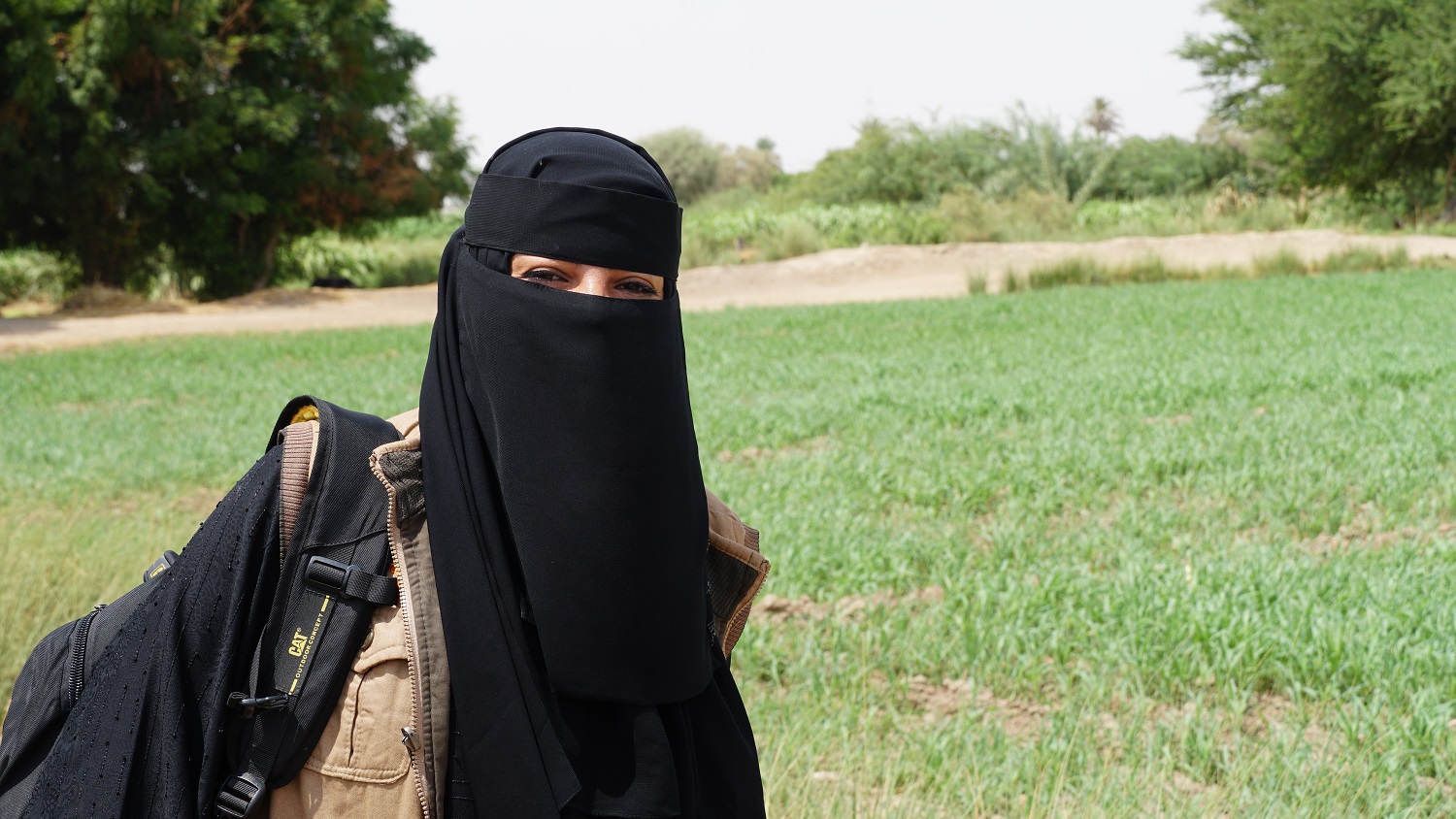My name is Manar Mohsen. I’m 37 years old from Aden, Yemen. I’ve been working with CARE in Aden as a Food Security and Livelihood (FSL) Field Officer for four years. My experience working in humanitarian aid spans more than nine years now.
When did you begin to realise you wanted to become a humanitarian aid worker?
Since I was in university, I’ve always wondered how I could participate in transforming my society and developing my country Yemen. With all the crises that Yemen has been through, I had a growing interest in women, children, and economic empowerment, so I made it a priority to learn more about these topics after graduating from university.
What is it that you like the most about your work?
Despite the massive needs in the country, I’m proud to be part of the life-saving aid operations in Yemen. I’m also glad to be a member of CARE’s Yemen staff. I believe that CARE’s work saves lives, maintains people’s dignity, and ensures their access to development opportunities. Through my work with CARE, I was able to improve my skills and gain new insights at a personal and professional level.
Do you believe that there are advantages of being a woman in your role?
Yes, there are many advantages. Being a woman helps me easily reach out to one of the most vulnerable groups, which is women. As a woman, I can communicate better with other women as well as understand their needs and gain their trust. Due to traditional customs, communities prefer female humanitarian workers to deal with women in their communities.
Are there times when things become very stressed and hard? How do you cope and how do you re-energize at the end of a hard day or week?
Humanitarian aid work in an emergency setup is extremely complex, highly demanding and requires rapid response. There are many challenges working under these conditions. Add to that access difficulties, psychological needs of conflict-affected groups, and diversity of mentalities, customs, and traditions.
Through the years, I gained a good experience on how to relieve my stress through reconnecting to my purpose and practicing my hobbies, including drawing, reading, listening to music, and sometimes shopping.
Have there been moments which made you think ‘this is all worth it’?
Our work is difficult, but the smile of a beneficiary or a child is enough to make me forget all the fatigue and challenges I face. Of course, our work is worth it because working hard to help others makes you feel psychological comfort and connected to humanity.
I’m always feel thrilled when completing the implementation of Village Savings and Loan Associations (VSLAs) activities which forms an integral part of my work. I believe that economic empowerment and strengthening solidarity among community members through VSLA contribute immensely to rural development. I often receive calls from beneficiaries telling me how they started their small business after obtaining loans from VSLA. This makes me feel that I was part of this positive change in their lives.
What would be your message to someone who is thinking about starting in the humanitarian sector? Especially to women considering entering into this line of work?
I encourage women to get involved in this field. My message to every person who thinks about engaging in the humanitarian sector is to believe in the importance of humanitarian work. And to be aware of the core principles that regulate our work and give us credibility and trust with targeted communities.


